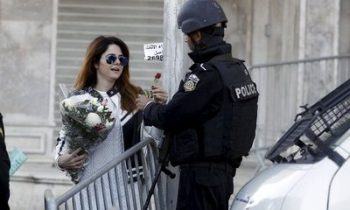 LAST week, the Tunisian National Dialogue Quartet — a motley civil society coalition of labour, industry, human rights activists and lawyers — received the Nobel peace prize in Oslo. The five-member Norwegian Nobel committee praised the quartet’s “decisive contribution to the building of a pluralistic democracy”, while African Union chairwoman Nkosazana Dlamini-Zuma had noted previously that “Tunisia has become a beacon of hope for peace in Africa”.The coalition helped their country avert civil war in 2013 by pushing political parties to accept a government of technocrats to organise democratic elections, negotiating a secular constitution that protected the rights of women, and coaxing the Islamist Ennahda party to surrender power. It was appropriate that Tunisia — the cradle of the “Afro-Arab Spring” — was awarded this prize, which four South Africans — Albert Luthuli, Desmond Tutu, Nelson Mandela and FW de Klerk — have won.
LAST week, the Tunisian National Dialogue Quartet — a motley civil society coalition of labour, industry, human rights activists and lawyers — received the Nobel peace prize in Oslo. The five-member Norwegian Nobel committee praised the quartet’s “decisive contribution to the building of a pluralistic democracy”, while African Union chairwoman Nkosazana Dlamini-Zuma had noted previously that “Tunisia has become a beacon of hope for peace in Africa”.The coalition helped their country avert civil war in 2013 by pushing political parties to accept a government of technocrats to organise democratic elections, negotiating a secular constitution that protected the rights of women, and coaxing the Islamist Ennahda party to surrender power. It was appropriate that Tunisia — the cradle of the “Afro-Arab Spring” — was awarded this prize, which four South Africans — Albert Luthuli, Desmond Tutu, Nelson Mandela and FW de Klerk — have won.
When an unemployed 26-year-old street vendor, Mohamed Bouazizi, immolated himself in December 2010 in a protest against government repression, his martyrdom triggered a political revolution that toppled mummified Pharaohs in Tunisia, Egypt and Libya.
However, following the “Jasmine Revolution” of 2011, the political situation in Tunisia became bleak amid political assassinations, street protests and a weak military overwhelmed by local and regionally fuelled Islamic insurgencies.
The moving force behind the Tunisian quartet in August 2013 was Houcine Abbassi, head of the Tunisian General Labour Union. Many believed that he deserved the most credit for the democratic transition, and some felt he alone should have won the Nobel prize.
The veteran trade unionist was tenacious in convincing his historical foe, Ennahda, to stand aside and allow new elections. He employed his formidable deal-making skills as a labour negotiator and deployed his union’s superior economic clout (with 750,000 members) to stitch together complex political deals.
The quartet’s strategy was to use its popular legitimacy to draw a road map signed by 20 parties, establish an independent electoral commission and force amendments in the draft constitution during a three-month national dialogue.
Rather like the South African peace process, Tunisia’s dialogue was a home-grown one that crafted creative local solutions rather than relying on external mediators.
One of the most important elements in the Tunisian success was the political maturity of Ennahda, which became the first Islamic party to give up power voluntarily.
If, like Egypt’s Muslim Brotherhood, Ennahda had decided to dig in its heels and insist on its popular mandate from elections in October 2011, the outcome in Tunisia would doubtless have been very different.
Unlike Egypt’s military junta, Tunisia’s military brass hats stayed in their barracks, and Ennahda lost power through ballots rather than bullets, handing over to the secularist Nidaa Tounes coalition following last year’s election.
Despite the optimism that has greeted Tunisia’s Nobel triumph, dark clouds loom on the horizon. Two terrorist attacks this year killed 21 tourists at the National Bardo Museum in Tunis in March, while 38 tourists were gunned down at a resort in Sousse in June. The largest group of foreigners joining the Islamic State in Syria and Iraq are Tunisians.
Amid internal wrangling and splits, the country’s political system remains rife with cronyism and corruption. Some have even complained that the quartet’s peace deal represented an “elite pact” that shared the spoils of power among secularists and Islamist political players, but marginalised the masses, who continue to bear the brunt of 15% unemployment.
Regional tensions remain between the poor south and wealthier north. Tunisia itself is entrapped in a rough neighbourhood between anarchic Libya and turbulent Algeria. The government in Tunis has been accused of clamping down on genuine dissent by passing antiterrorism legislation and closing 80 mosques.
Many members of the ancien régime of the ossified dictatorship of Ben Ali are now back in power, obstructing efforts to seek truth and reconciliation and instead pushing dubious political amnesties.
The clear lesson from Tunisia, however, remains that supporting civil society efforts can be a cost-effective way of preventing violent conflicts. But despite this Nobel prize, the Jasmine revolution is far from being consolidated and appears to be devouring its own children.

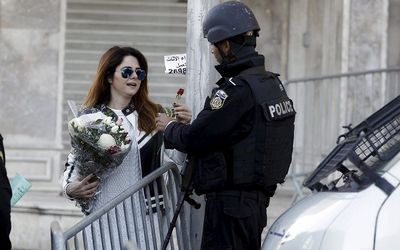
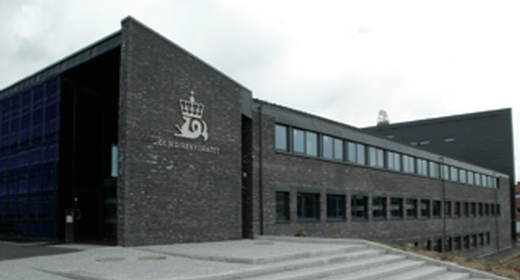
 The Norwegian Petroleum Directorate (NPD) has issued an update on its analysis of recoverable oil from Norway’s various offshore fields and discoveries. NPD’s goal in 2005 was to achieve growth in oil reserves of 5 BBbl over 10 years. The actual result is somewhat below that figure, although the target would have been achieved if Statoil’s development plan for Johan Sverdrup in the North Sea had been submitted before the end of 2014.“There has been substantial resource growth in many fields,” said Kirsti Veggeland, assistant director general for shelf analysis. “The most important reasons for this are more wells, extended field lifetimes and improved knowledge.”
The Norwegian Petroleum Directorate (NPD) has issued an update on its analysis of recoverable oil from Norway’s various offshore fields and discoveries. NPD’s goal in 2005 was to achieve growth in oil reserves of 5 BBbl over 10 years. The actual result is somewhat below that figure, although the target would have been achieved if Statoil’s development plan for Johan Sverdrup in the North Sea had been submitted before the end of 2014.“There has been substantial resource growth in many fields,” said Kirsti Veggeland, assistant director general for shelf analysis. “The most important reasons for this are more wells, extended field lifetimes and improved knowledge.”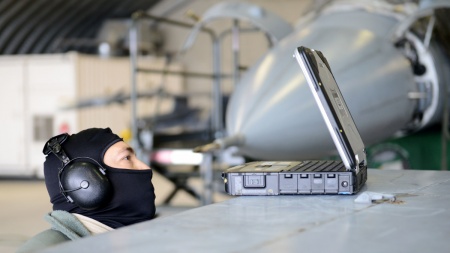
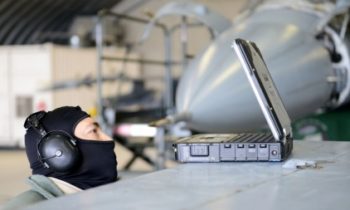 Exercise Cold Response 16 is underway at Bodø Main Air Station, Norway, as Norwegian, U.S. and Belgian air forces continue to showcase NATO’s and the Partners for Peace’s ability to defend against any threat, in any environment-especially a frozen one. “Cold Response is designed to test our Airmen and other countries in cold-weather operations during major combat scenarios,” said Capt. William Flynt, 555th Fighter Squadron F-16 Fighting Falcon instructor pilot and exercise project officer.Operations seemed poised for a rocky start as many of Aviano’s Airmen and equipment weren’t present when the exercise kicked off; however, the Wyverns adapted quickly to the challenge.
Exercise Cold Response 16 is underway at Bodø Main Air Station, Norway, as Norwegian, U.S. and Belgian air forces continue to showcase NATO’s and the Partners for Peace’s ability to defend against any threat, in any environment-especially a frozen one. “Cold Response is designed to test our Airmen and other countries in cold-weather operations during major combat scenarios,” said Capt. William Flynt, 555th Fighter Squadron F-16 Fighting Falcon instructor pilot and exercise project officer.Operations seemed poised for a rocky start as many of Aviano’s Airmen and equipment weren’t present when the exercise kicked off; however, the Wyverns adapted quickly to the challenge.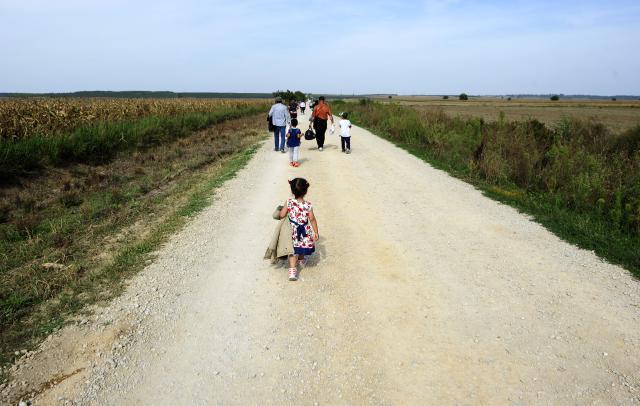
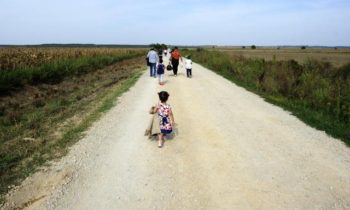

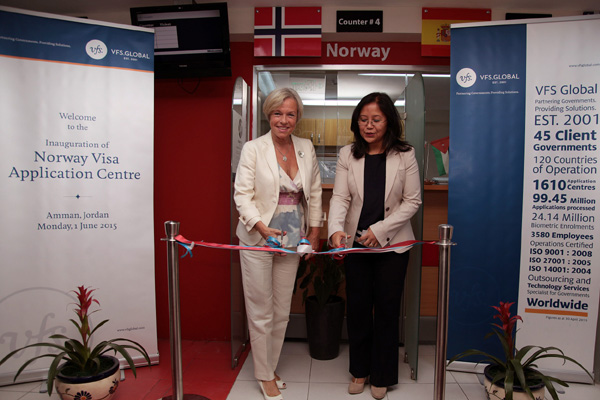
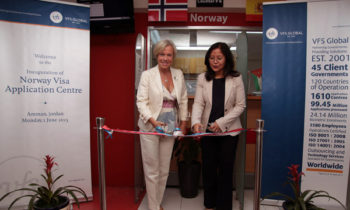 The government of Norway, in collaboration with leading outsourcing and technology services specialist VFS Global, has opened the first visa application centre (VAC) in Amman, Jordan. The Norway Visa Application Centre in Amman was officially inaugurated today by Ms Sissel Breie, ambassador of Norway to Jordan.Speaking on the occasion, the Ambassador said that the visa application centre will be the main channel in Jordan for submitting applications for visas to Norway, Denmark, Finland and Iceland, as well as residence permits to Norway and Denmark for persons residing in Jordan and Iraq.
The government of Norway, in collaboration with leading outsourcing and technology services specialist VFS Global, has opened the first visa application centre (VAC) in Amman, Jordan. The Norway Visa Application Centre in Amman was officially inaugurated today by Ms Sissel Breie, ambassador of Norway to Jordan.Speaking on the occasion, the Ambassador said that the visa application centre will be the main channel in Jordan for submitting applications for visas to Norway, Denmark, Finland and Iceland, as well as residence permits to Norway and Denmark for persons residing in Jordan and Iraq.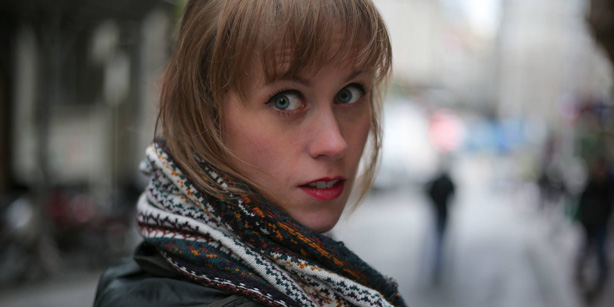
 Silje Rønning Kampesæter, the Middle East correspondent for the Norwegian Aftenposten daily, had to leave Turkey after her application for a press card was rejected by the Prime Ministry’s Press Office. Aftenposten published an article on Tuesday reporting this is the first time since 1971 that one of the paper’s reporters is being forced to leave a country. The last occurrence took place in Soviet Russia.The Norwegian reporter arrived in Turkey on Sept. 24, 2015 and immediately began her application process. “Since it took quite some time, and I was eager to get it done by the early election [on Nov. 1], I was calling on a weekly basis to see where my documents were in the process,” she told Today’s Zaman in a phone interview.
Silje Rønning Kampesæter, the Middle East correspondent for the Norwegian Aftenposten daily, had to leave Turkey after her application for a press card was rejected by the Prime Ministry’s Press Office. Aftenposten published an article on Tuesday reporting this is the first time since 1971 that one of the paper’s reporters is being forced to leave a country. The last occurrence took place in Soviet Russia.The Norwegian reporter arrived in Turkey on Sept. 24, 2015 and immediately began her application process. “Since it took quite some time, and I was eager to get it done by the early election [on Nov. 1], I was calling on a weekly basis to see where my documents were in the process,” she told Today’s Zaman in a phone interview.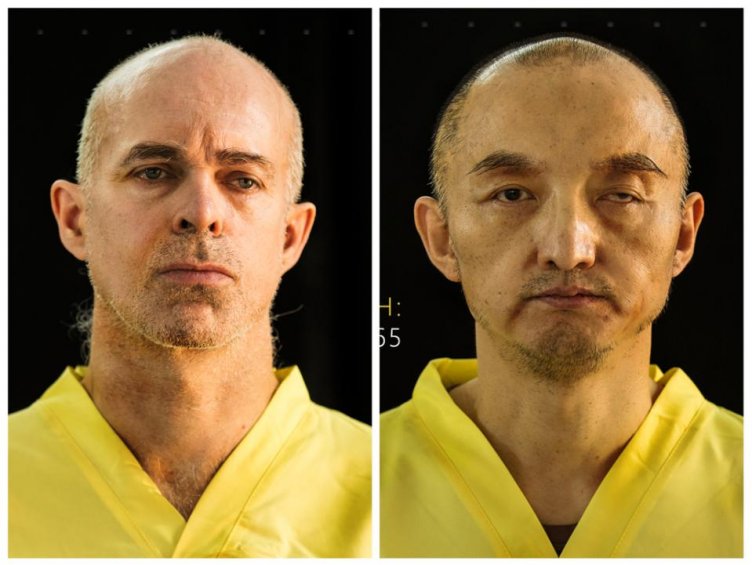
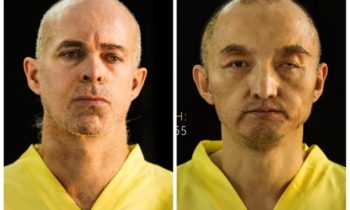 The Islamic State militant group (ISIS) claims to have killed two hostages, one from China and one from Norway, in the release of its official English-language propaganda magazine. In September, the group published “for sale” advertisements for Chinese national Fan Jinghui and a Norwegian national Ole Johan Grimsgaard-Ofstad in the magazine entitled Dabiq. Both were pictured in yellow jumpsuits, set against jet-black backgrounds.The group’s latest release of Dabiq on Wednesday includes photographs of two lifeless bodies with bloody faces, purporting to be those of Grimsgaard-Ofstad and Jinghui, with the word “Executed” stamped over the page.
The Islamic State militant group (ISIS) claims to have killed two hostages, one from China and one from Norway, in the release of its official English-language propaganda magazine. In September, the group published “for sale” advertisements for Chinese national Fan Jinghui and a Norwegian national Ole Johan Grimsgaard-Ofstad in the magazine entitled Dabiq. Both were pictured in yellow jumpsuits, set against jet-black backgrounds.The group’s latest release of Dabiq on Wednesday includes photographs of two lifeless bodies with bloody faces, purporting to be those of Grimsgaard-Ofstad and Jinghui, with the word “Executed” stamped over the page.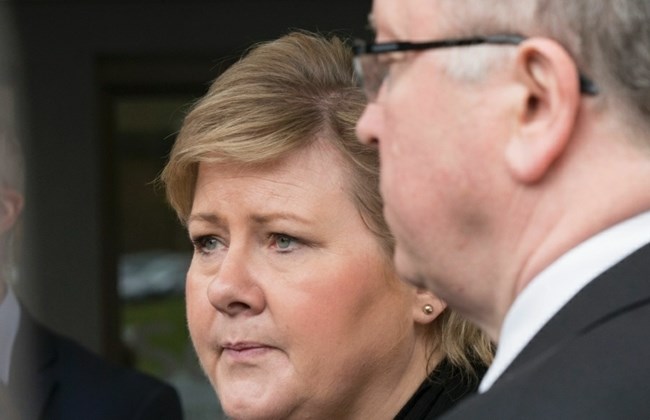
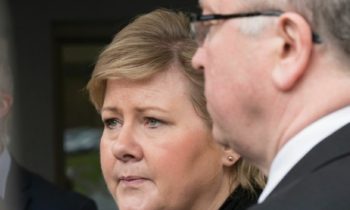 Researchers and research fellows at a number of Norwegian research communities are taking part in four Norwegian-Indian cooperative projects on fish and animal vaccines. At least as many people at Indian universities and research institutions are participating in the projects. Cooperating on fish and animal vaccines is part of the large-scale collaboration on vaccine research agreed upon in Delhi in December 2005 by Prime Minister Jens Stoltenberg and Indian Minister of Science and Technology Kapil Sibal.
Researchers and research fellows at a number of Norwegian research communities are taking part in four Norwegian-Indian cooperative projects on fish and animal vaccines. At least as many people at Indian universities and research institutions are participating in the projects. Cooperating on fish and animal vaccines is part of the large-scale collaboration on vaccine research agreed upon in Delhi in December 2005 by Prime Minister Jens Stoltenberg and Indian Minister of Science and Technology Kapil Sibal.
 The Director General of the Norwegian Air Investigations Branch (AIBN) said work has begun to put “together the puzzle” of what happened on board a fatal North Sea helicopter crash.
The Director General of the Norwegian Air Investigations Branch (AIBN) said work has begun to put “together the puzzle” of what happened on board a fatal North Sea helicopter crash.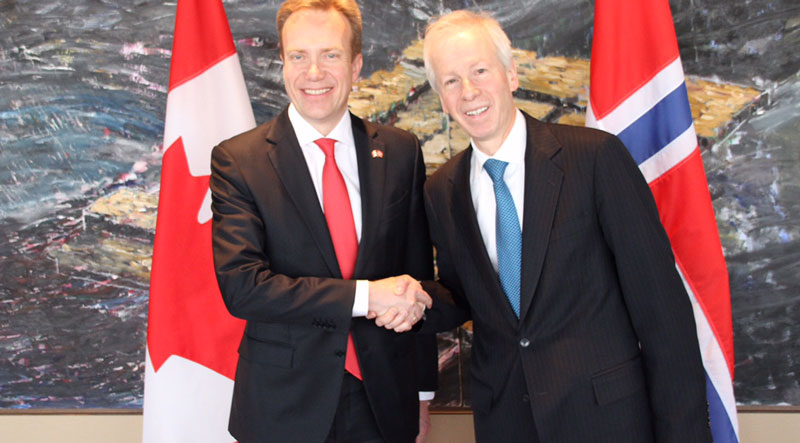
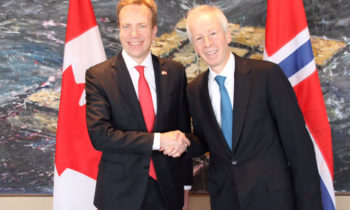 ‘Transatlantic ties are more important than ever as we navigate today’s security policy landscape. Few countries have more in common than Norway and Canada – geographically, in terms of resources, and in what we believe to be important.
‘Transatlantic ties are more important than ever as we navigate today’s security policy landscape. Few countries have more in common than Norway and Canada – geographically, in terms of resources, and in what we believe to be important.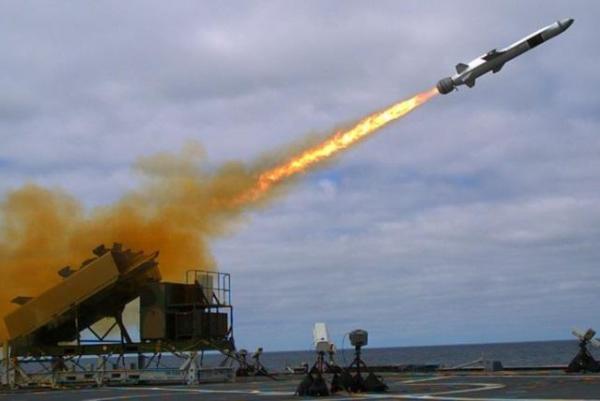
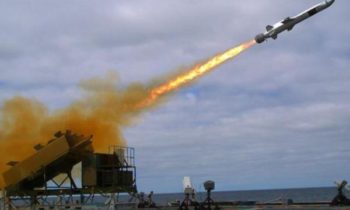 The U.S. Navy is issuing a contract to Kongsberg Defense of Norway for missiles and equipment for additional testing of its Naval Strike Missile.
The U.S. Navy is issuing a contract to Kongsberg Defense of Norway for missiles and equipment for additional testing of its Naval Strike Missile.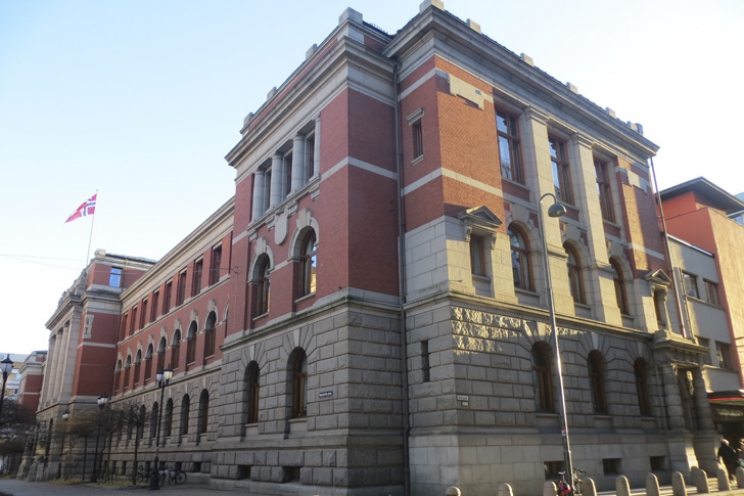
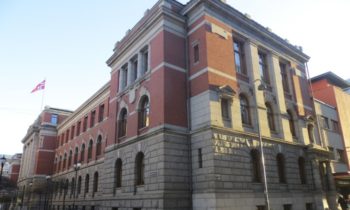 JUST before Valentine’s Day, a 45-year-old Norwegian had something of a shock when a taxi in which he was travelling arrived at his home in Marbella, City in Spain to be greeted by officers of the Spain National Police who handed him a warrant issued by the Oslo district court and arrested him on behalf of the Norwegian authorities.
JUST before Valentine’s Day, a 45-year-old Norwegian had something of a shock when a taxi in which he was travelling arrived at his home in Marbella, City in Spain to be greeted by officers of the Spain National Police who handed him a warrant issued by the Oslo district court and arrested him on behalf of the Norwegian authorities.
 The Air Accidents Investigation Branch (AAIB) said it has deployed a team to Norway after a North Sea helicopter crashed.
The Air Accidents Investigation Branch (AAIB) said it has deployed a team to Norway after a North Sea helicopter crashed.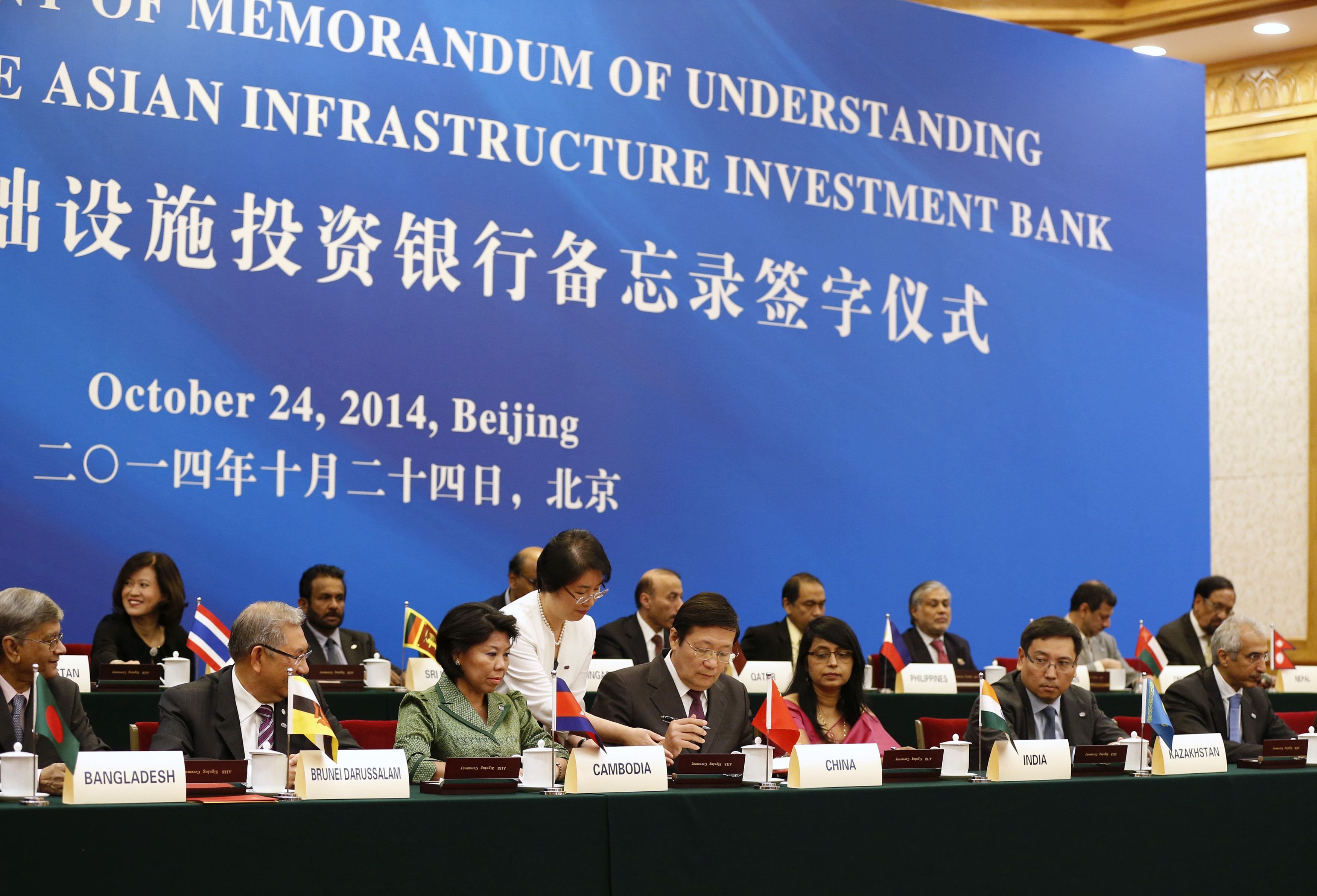
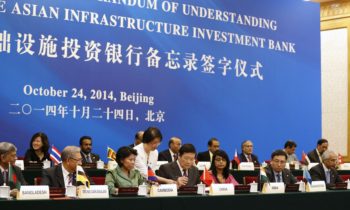 China confirmed the reception of Norway’s application to join the Asian Infrastructure Investment Bank (AIIB) on Wednesday. “We have received the application. The AIIB is an open multilateral institute and welcomes countries in and out of Asia to apply for joining,” Foreign Ministry spokeswoman Hua Chunying said at a daily press briefing.Hua made the comments when asked to comment on Norway’s confirmation of its intention to join as a prospective founding member.
China confirmed the reception of Norway’s application to join the Asian Infrastructure Investment Bank (AIIB) on Wednesday. “We have received the application. The AIIB is an open multilateral institute and welcomes countries in and out of Asia to apply for joining,” Foreign Ministry spokeswoman Hua Chunying said at a daily press briefing.Hua made the comments when asked to comment on Norway’s confirmation of its intention to join as a prospective founding member.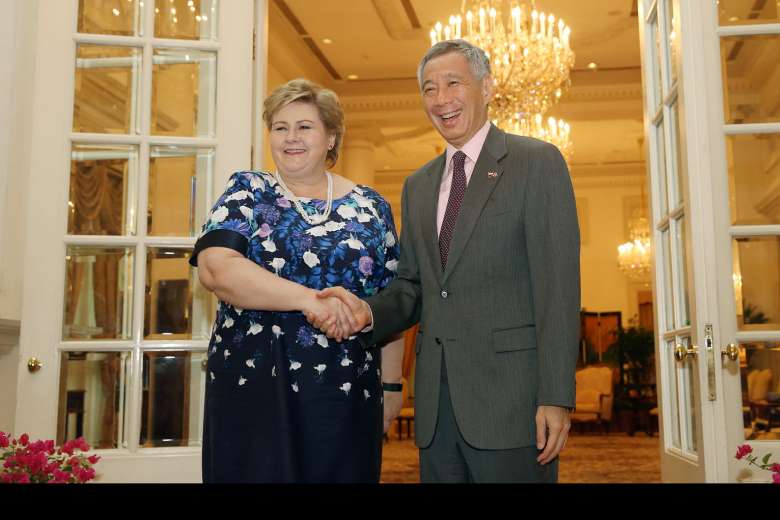
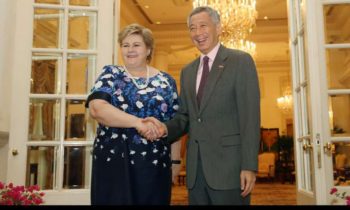 One year after Norway became independent in 1905, the Scandinavian country set up a consulate here – a sign of Singapore’s importance as a harbour for Norwegian vessels. Yesterday, 110 years later, Norway’s visiting Prime Minister Erna Solberg paid tribute to the enduring friendship between the two countries, calling Singapore “one of our closest friends in Asia”.Ms Solberg, who was hosted to lunch at the Istana by Prime Minister Lee Hsien Loong, said both share a history and a forward-looking economic relationship.
One year after Norway became independent in 1905, the Scandinavian country set up a consulate here – a sign of Singapore’s importance as a harbour for Norwegian vessels. Yesterday, 110 years later, Norway’s visiting Prime Minister Erna Solberg paid tribute to the enduring friendship between the two countries, calling Singapore “one of our closest friends in Asia”.Ms Solberg, who was hosted to lunch at the Istana by Prime Minister Lee Hsien Loong, said both share a history and a forward-looking economic relationship.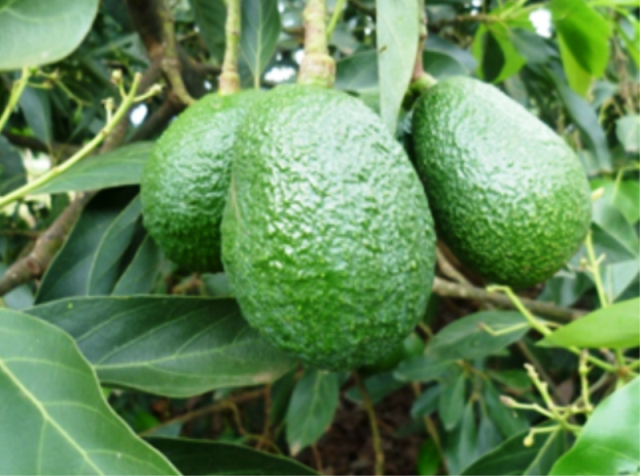
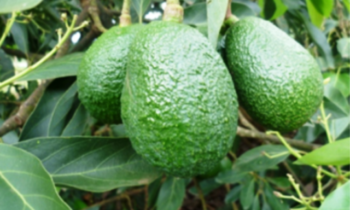 However, the purpose of her visit was not only to discuss strategic matters, Ms Skogen was very interested in talking to people who are benefitting directly on the ground from Norwegian support. She therefore visited the Arusha Technical College to experience firsthand vocational and technical training making an impact on the lives of Tanzanians, a biogas project set to benefit local communities with big ambitions to commercialise biogas across Tanzania, and a successful avocado project exporting the high quality fruit to world class supermarkets in the West.Dr Richard Masika, Rector of Arusha Technical College welcomed the Norwegian delegation and gave a presentation where he said, “Through Norwegian support we have been carrying out a feasibility study to develop Kikuletwa Power Station. Built by the Germans in the 1930s it lacked maintenance through nationalisation and ground to a complete halt in the late 1980s.
However, the purpose of her visit was not only to discuss strategic matters, Ms Skogen was very interested in talking to people who are benefitting directly on the ground from Norwegian support. She therefore visited the Arusha Technical College to experience firsthand vocational and technical training making an impact on the lives of Tanzanians, a biogas project set to benefit local communities with big ambitions to commercialise biogas across Tanzania, and a successful avocado project exporting the high quality fruit to world class supermarkets in the West.Dr Richard Masika, Rector of Arusha Technical College welcomed the Norwegian delegation and gave a presentation where he said, “Through Norwegian support we have been carrying out a feasibility study to develop Kikuletwa Power Station. Built by the Germans in the 1930s it lacked maintenance through nationalisation and ground to a complete halt in the late 1980s.
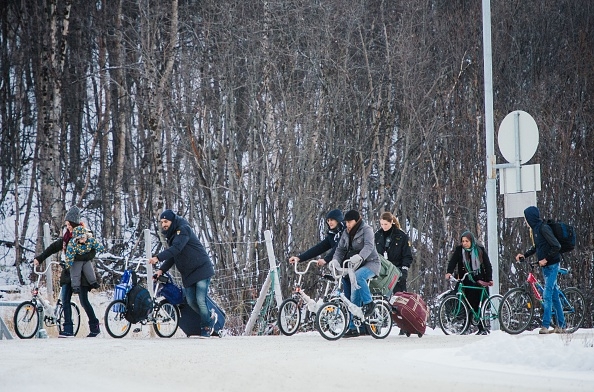
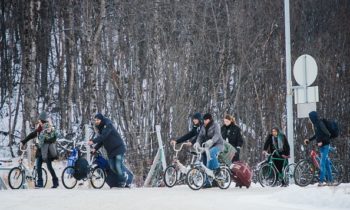 On Tuesday, Norway began sending refugees and migrants who battled temperatures approaching 30 degrees below zero to cross the country’s Arctic border. The UN criticized Norway’s treatment toward migrants stating this move might send people freezing to death.Mashable reported that 13 people boarded a bus to cross the Russian border after leaving a reception facility in Kirkenes, Norway. Immigration officers confirmed this report and said that the bus left at around 6 pm and eight men had volunteered to go. Sylvi Listhaug, one of the immigration minister, said that the migrants would be taken to Nikel and Murmansk, in Russia.
On Tuesday, Norway began sending refugees and migrants who battled temperatures approaching 30 degrees below zero to cross the country’s Arctic border. The UN criticized Norway’s treatment toward migrants stating this move might send people freezing to death.Mashable reported that 13 people boarded a bus to cross the Russian border after leaving a reception facility in Kirkenes, Norway. Immigration officers confirmed this report and said that the bus left at around 6 pm and eight men had volunteered to go. Sylvi Listhaug, one of the immigration minister, said that the migrants would be taken to Nikel and Murmansk, in Russia.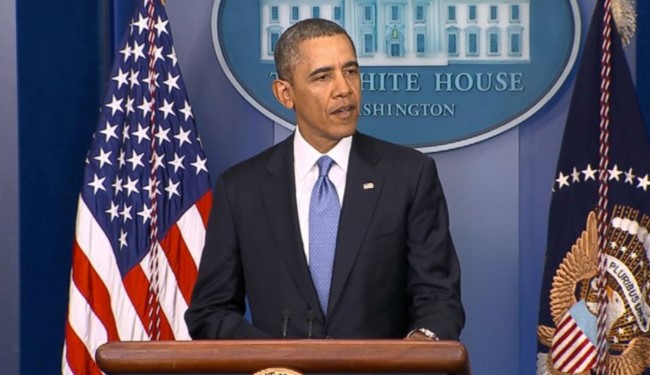
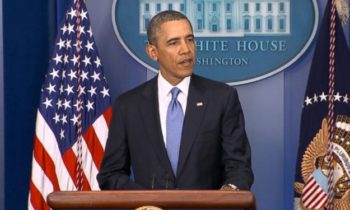
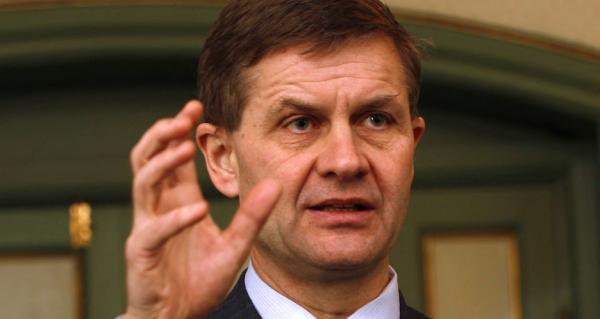
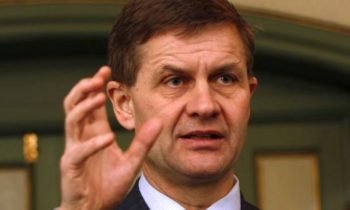 The United Nations’ top climate change official, Christiana Figueres, welcomed the confirmation today of Norwegian Erik Solheim as Executive Director of the United Nations Environment Programme (UNEP) and applauded the work of the programme’s outgoing head.
The United Nations’ top climate change official, Christiana Figueres, welcomed the confirmation today of Norwegian Erik Solheim as Executive Director of the United Nations Environment Programme (UNEP) and applauded the work of the programme’s outgoing head.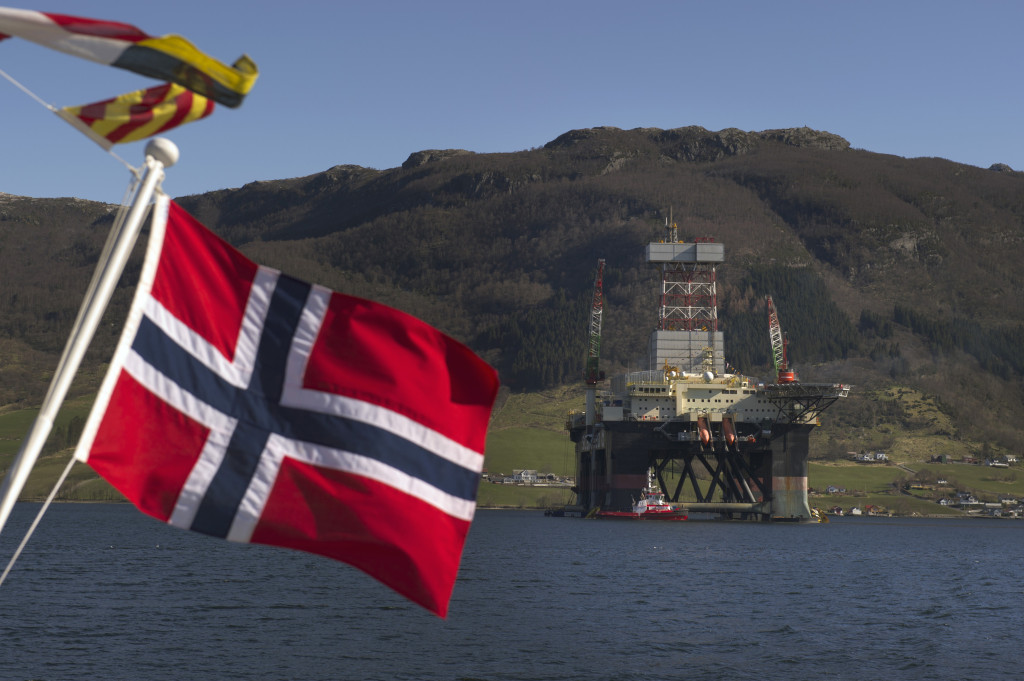
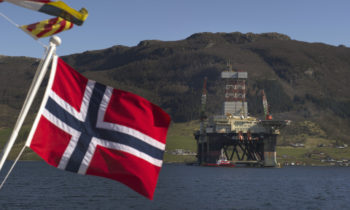
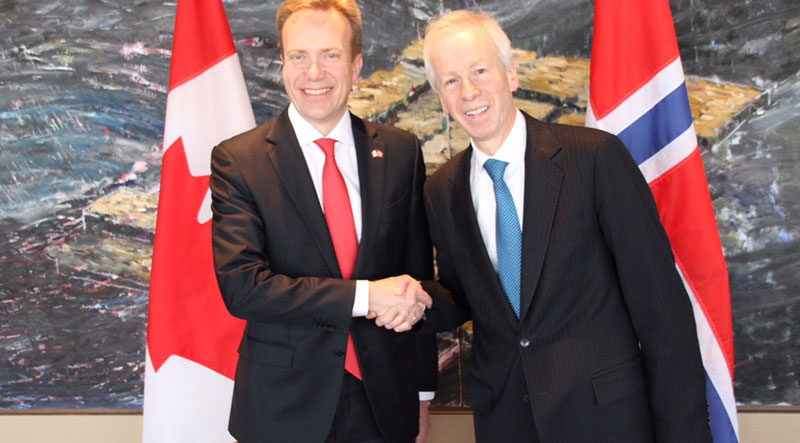
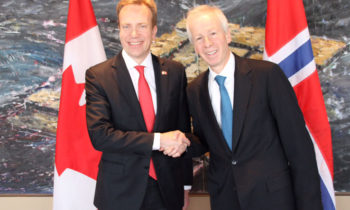 ‘Transatlantic ties are more important than ever as we navigate today’s security policy landscape. Few countries have more in common than Norway and Canada – geographically, in terms of resources, and in what we believe to be important.
‘Transatlantic ties are more important than ever as we navigate today’s security policy landscape. Few countries have more in common than Norway and Canada – geographically, in terms of resources, and in what we believe to be important.
 ‘We were horrified and deeply saddened to receive the news of Wednesday’s terrorist attacks in Baghdad. I would like to convey my deepest condolences to the Iraqi people, who are so often the target of terrorist attacks. The attacks are a clear demonstration of ISIL’s contempt for human life and norms of human decency,’ said Minister of Foreign Affairs Børge Brende.
‘We were horrified and deeply saddened to receive the news of Wednesday’s terrorist attacks in Baghdad. I would like to convey my deepest condolences to the Iraqi people, who are so often the target of terrorist attacks. The attacks are a clear demonstration of ISIL’s contempt for human life and norms of human decency,’ said Minister of Foreign Affairs Børge Brende.